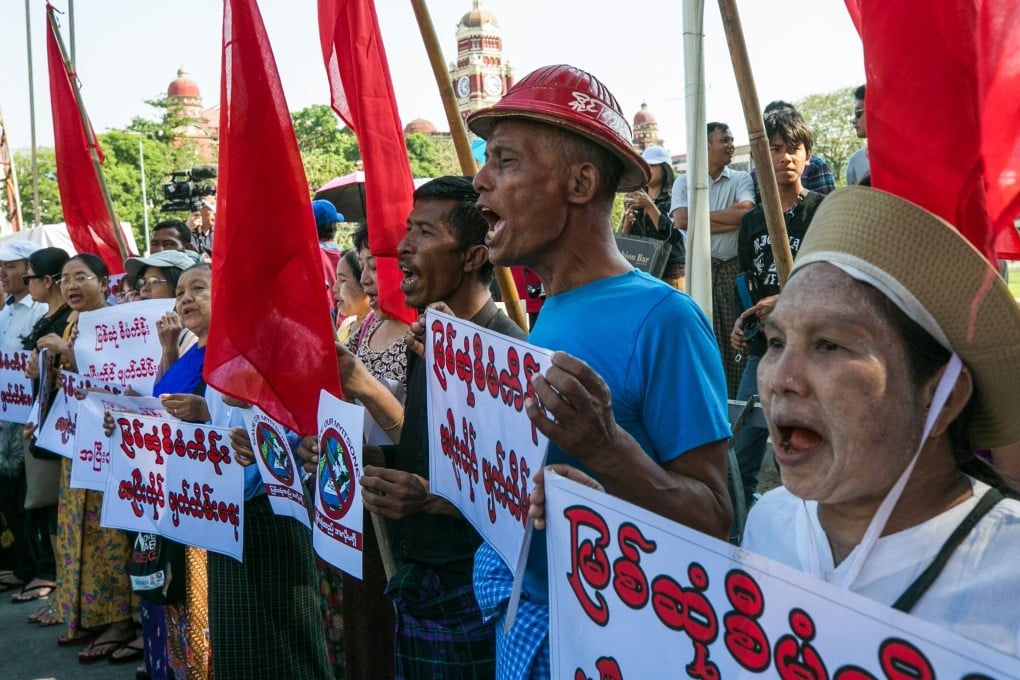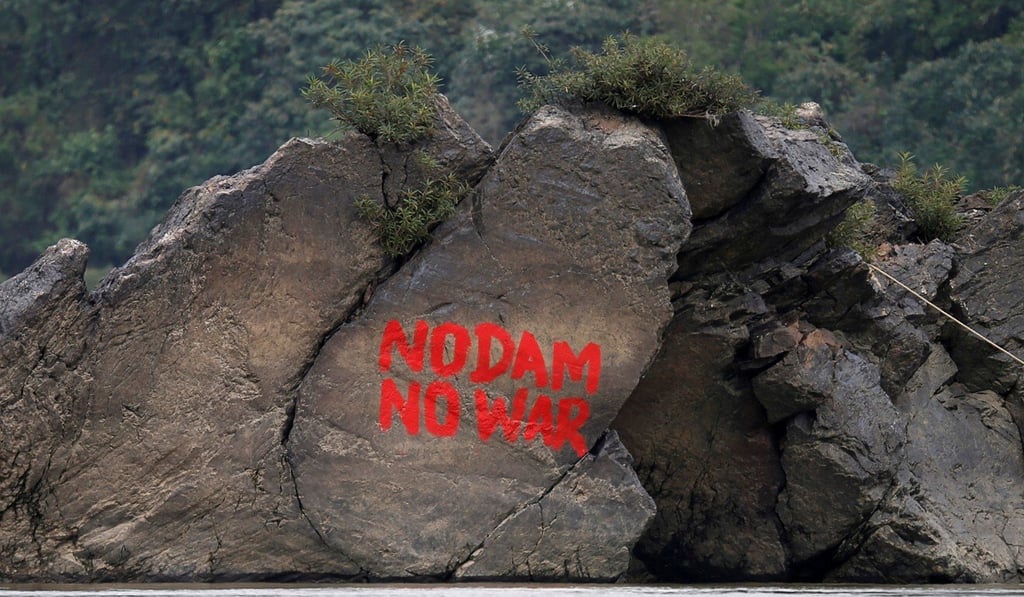Advertisement
Could Chinese investments cost Suu Kyi the Myanmar election?
- Controversial China-backed projects like the Myitsone Dam and the Belt and Road Initiative will be key election issues as Myanmar heads to the polls
- While Chinese plans face resistance, analysts say Beijing can win over the locals if it plays its cards right
Reading Time:7 minutes
Why you can trust SCMP

Come November, anti-China sentiment could well be the issue that sways a pivotal election – and not only in the United States. As Myanmar approaches its second vote since the end of military rule in 2011, all eyes will be on how Naypyidaw walks the tightrope between maintaining healthy ties with its largest neighbour and benefactor and managing simmering local discontent with a variety of China-backed economic projects.
For anyone who doubted China might be an election issue, the opposition Kachin State People’s Party is urging in its election manifesto the permanent abolition of the China-backed Myitsone Dam. In its 15-point manifesto for the election on November 8, the party – formed through a merger of six major Kachin parties in 2018 – pledges to “make efforts to halt the Myitsone Dam forever”.
“Nobody wants to see the revival of the dam. Not only Kachin people but also a majority of the people in Myanmar,” the Kachin State People’s Party vice-chairman Gumgrawng Awng Hkam told local media.
Advertisement
Work on the dam project was suspended in 2011 by then President Thein Sein amid local concerns over its environmental and social impacts. Some critics had claimed the electricity generated by the dam – a joint project between the China Power Investment Corporation, Myanmar’s Ministry of Electric Power and the Asia World Company – would primarily be exported to China, while others argued it would displace tens of thousands of locals, destroy biodiversity and submerge temples and other cultural heritage sites. Even with work suspended, the project remains a key sticking point in the Myanmar-China relationship to this day.

Advertisement
As if to pre-empt fallout from the election, Chinese state councillor Yang Jiechi visited Myanmar this month, pledging that Beijing would prioritise sharing coronavirus vaccines with Myanmar once they become available.
Reminding his hosts of the traditional China-Myanmar “Paukphaw” (fraternal) friendship, as underscored by Chinese President Xi Jinping during a state visit in January this year, Yang said the countries should deepen their cooperation in the China-Myanmar Economic Corridor (CMEC), part of Beijing’s Belt and Road Initiative to promote Eurasian economic integration through infrastructure.
Advertisement
Select Voice
Select Speed
1.00x